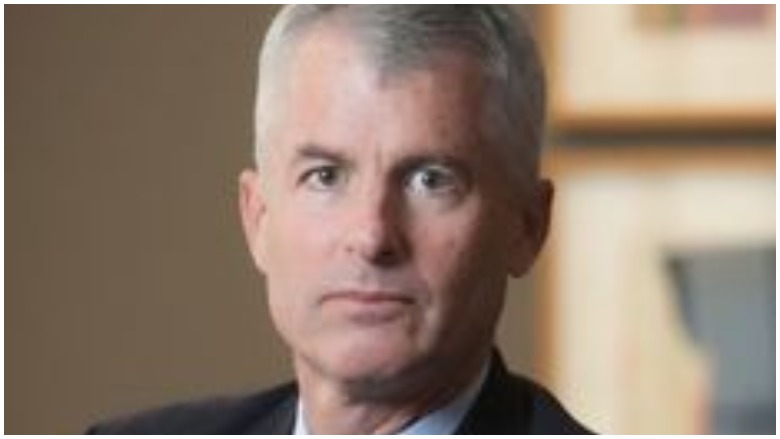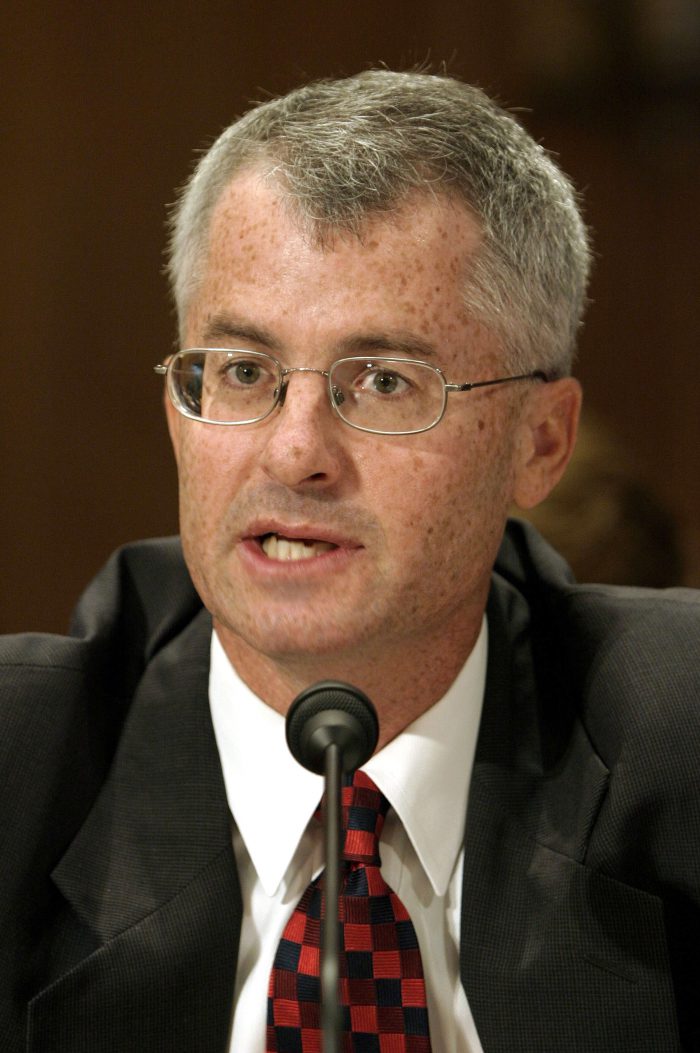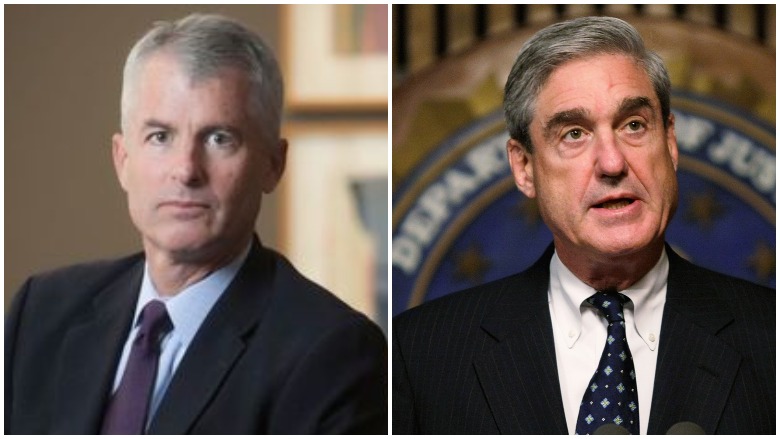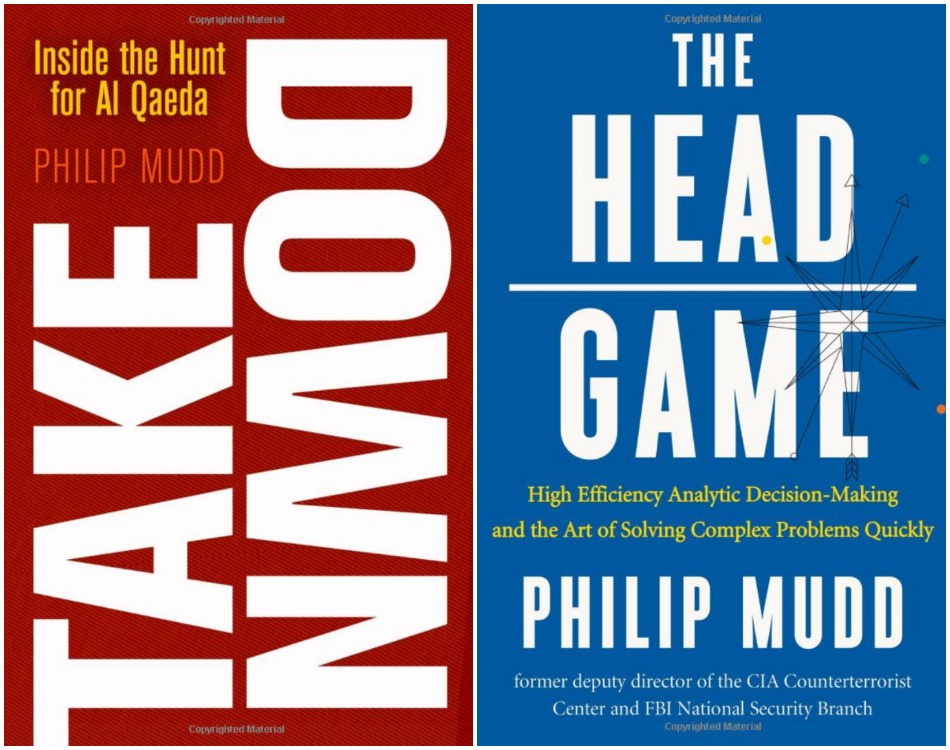
Philip Mudd.
Philip Mudd has been a CIA analyst, the deputy director of the national security branch of the FBI, and continues to serve as an advisor at the National Counterterrorism Center.
He was one of more than 230 U.S. intelligence officials to sign one of two letters denouncing President Trump’s decision to revoke the security clearance of former CIA director John Brennan. The president threatened to revoke Mudd’s security clearance shortly after but did not end up doing so.
In addition to his consulting work, Mudd is also a counterterrorism analyst for CNN.
Here’s what you need to know.
1. Philip Mudd Joined the CIA in 1985 and Focused Extensively on the Middle East

GettyPhilip Mudd, deputy director of the CIA Counterterrorist Center, speaks during a hearing of the Senate Governmental Affairs Committee August 3, 2004 on Capitol Hill in Washington, DC.
Philip Mudd’s educational achievements are in English Literature. He earned a bachelor’s degree from Villanova University in 1983 and a master’s from the University of Virginia in 1984. But rather than focus on literature in his professional career, Mudd decided to enter public service instead.
Mudd joined the CIA in 1985. He was put to work as an analyst specializing in South Asia and later the Middle East. His college degrees, which would have required doing a lot of research, studying dense texts and interpreting complex topics, would have prepared him for this analytical work. According to the career section of the CIA website, being an analyst is all about having the ability to gather and interpret information that can shift dramatically.
“CIA analysts are skilled subject-matter experts who study and evaluate information from all available sources—classified and unclassified—and then analyze it to provide timely and objective assessments. Their main customers are the President and his senior advisers.
Intelligence analysts must be plugged into the cutting edge of fast-paced global change. Information constantly flows in from around the world, including satellite surveillance, foreign broadcasts, and human contacts, and analysts must quickly sift through data that is often inconsistent and incomplete. This is like putting together the pieces of a puzzle received at different times, from different places, and with pieces of other puzzles mixed in.”
In 1992, Mudd began working in the CIA’s Counterterrorist Center. The division focuses on disrupting terror plots, cutting off terror organizations from their financial backers, and targeting leaders and cells.
From there, Mudd was nominated to serve on the National Intelligence Council, supporting the Director of National Intelligence. This organization advises the president on global threat and possible strategies. Mudd served as the Deputy National Intelligence Officer for the Near East and South Asia, a role he held from 1995 until 1998.
Mudd was then shifted from the Near East to the Middle East. From 1999 until 2001, he managed Iraq analysis at the CIA. In early 2001, he began a new assignment at the White House under then-President George W. Bush. Mudd served as the Director for Gulf Affairs on the White House National Security Council.
Following the September 11, 2001 attacks, a diplomatic team was put together with the assignment of planning a new government for Afghanistan. Mudd served on that team as the CIA representative.
Mudd wrapped up his CIA service with leadership roles at the Counterterrorist Center. In 2002, he became second-in-charge of counterterrorism analysis. He was promoted to Deputy Director of the Center in 2003 and held that role until he left the agency in 2005.
2. Mudd Worked Closely with Robert Mueller at the FBI

Philip Mudd shifted his focus from international affairs to national security in 2005. He was named as the Deputy Director of the FBI’s newly created National Security Branch. Special Counsel and then-FBI Director Robert Mueller appointed Mudd to that position.
Mudd and Mueller worked together at the FBI for more than four years. Mudd holds his former boss in high esteem; he has praised Mueller as a “legendary” leader of the FBI. In May of 2017, Mudd wrote an editorial for CNN commenting on Mueller’s appointment to lead the investigation into Russian election meddling. Mudd wrote in that piece:
“I witnessed countless moments that would form my impressions of him. Threat meetings to discuss plots in American cities. Personnel decisions. Difficult conversations about the future of the FBI. And political dramas. No other leader I ever witnessed worked through this parade of risky, complex, and sometimes politically charged issues with the remarkable range of skill and steel of Mueller.”
Mudd was later promoted to the office of Senior Intelligence Adviser at the FBI. He served in that position until he retired from government service in March of 2010.
3. Philip Mudd Has Called President Trump a ‘Dirtbag’ and the Administration a ‘Clown Show’
In April of 2018, Fox News host Sean Hannity compared Special Counsel Robert Mueller to a “crime boss.” On that episode, Hannity called the Russia probe a “runaway investigation.” He went on to say, “It’s run by Mueller and his merry band of Trump-hating, deep state sycophants.” Hannity said the investigation was a “witch hunt” aimed at trying to take down the presidency. (You can watch Hannity’s April 2018 segment here).
Philip Mudd was not thrilled with that assessment and did not hold back during an interview with CNN on the topic. But he mistakenly said that President Trump had called Mueller a crime boss, rather than Hannity. The tirade ended with Mudd calling the president a “dirtbag.”
“This is a storied prosecutor, one of the most legendary FBI directors – spent 12 years as an FBI director for both President Bush and President Obama – decorated military veteran being compared to a crime boss when he’s investigating a man who bragged about his genitalia during a campaign, who lied about the Obama birth certificate during the campaign and said so, whose press secretary lied within 24 hours of getting into the White House, who lied about the Trump Tower’s being wired, who’s got, what, 17, 18 women, I’ve lost the number of fingers to count on how many women who’ve said he did something inappropriate, whose advisors have quit because they lied to federal investigators about everything from financial fraud to their involvement with the Russian ambassador.
So you got that dirtbag telling me that one of the most storied FBI directors ever is a crime boss? Robert Mueller is an American legend and the president is a dirtbag. I don’t know what to tell you, I’m so pissed off.”
Mudd has been a vocal critic of the new administration before Trump had even taken the oath of office. He slammed the hiring of General Michael Flynn as the National Security Adviser (a position Flynn held for just 23 days). Mudd also criticized the choice to grant high-level intelligence access to Trump’s children. Mudd said, “I’m watching a clown show.”
4. Mudd’s Post-Intelligence Career Has Included Security Consulting Work and a Leadership Role at an Asset Management Firm in Tennessee
Mudd left his job in government service in 2010, but he still volunteers his time as a consultant. Mudd still serves on the advisory board of the National Counterterrorism Center, which aides the Director of National Intelligence. This type of role serving the government is an example of unpaid work Mudd referenced in the CNN interview as he debated Paris Dennard.
Mudd is also a senior fellow at the New America Foundation, a non-partisan think tank based in Washington, D.C. In addition to that, he’s a fellow at the Homeland Security Policy Institute at George Washington University. The organization conducts research and analysis on national security issues, cybersecurity and counterterrorism measures.
He started his own company called Mudd Management. According to his bio, the company specializes in security consulting, analysis training and public speaking about security issues.
Philip Mudd has also expanded into the financial realm. He serves as the Director of Enterprise Risk at SouthernSun Asset Management in Memphis, Tennessee. According to the company website, SouthernSun prides itself on identifying high-value companies and smart investments.
5. Philip Mudd Has Written Two Books Inspired by his Experience as an Analyst

Philip Mudd has worked for the CIA for more than 15 years prior to the attacks of September 11, 2001. His first book, Takedown: Inside the Hunt for Al Qaeda, documents how his job dramatically changed after the attacks. He also laid out how the fight against terrorism shifted to also having to deal with homegrown terror plot all over the world.
Mudd followed up with a second book focused on analysis. The HEAD Game: High Efficiency Analytic Decision-Making and the Art of Solving Complex Problems Quickly was published in Aril of 2015. In the book, Mudd talks about how it’s difficult to make major decisions when presented with an overwhelming amount of data. He lays out a five-step methodology for making intelligent decisions when faced with complex situations.
